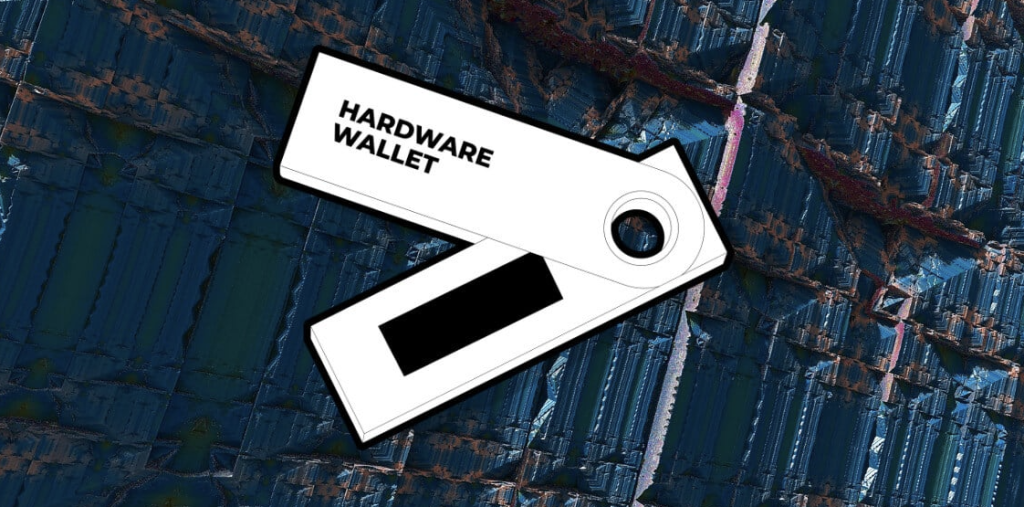
Are you concerned about the security of your cryptocurrency investments? As the popularity of digital currencies continues to grow, so does the need for secure storage options. Hardware wallets, such as Ledger, are often touted as the safest option for safeguarding your crypto assets.
However, a recent update to Ledger’s recovery feature has caused controversy and raised questions about the company’s commitment to customer safety. On one hand, the update offers a new feature that allows for greater convenience in the recovery process. On the other hand, some experts claim the update creates a backdoor that could compromise the security of your funds.
So, what should you do? In this article, we will explore the debate surrounding the update, discuss alternative hardware wallet options, and offer recommendations for those navigating the world of cryptocurrency security.
| 📚 Topic | 💡 Summary |
|---|---|
| 🔒 Ledger Recovery Feature | Ledger offers a recovery feature that allows users to backup their seed phrase to their personal identity through 3 custodians for a monthly fee. This feature is optional and is designed to provide peace of mind to users concerned about the security of their private keys. |
| 🚨 Security Concerns and Alternatives | Some users have expressed concerns about the potential security risks associated with Ledger’s recovery feature. In response, some have turned to alternative hardware wallet options, including Passport, ColdCard, BitBox02, Trezor, CoolWallet, and KeepKey. |
| 🗣️ Ledger’s Response to Criticism | Ledger’s co-founders have responded to criticism by asserting that their update does not create a backdoor and that nothing happens without the user’s consent. They emphasize the importance of personal preference and responsibility in custodial options. |
| 💬 Debate on Twitter | The debate on Twitter revolves around the potential security risks associated with Ledger’s Recovery feature. Some users advocate for joint custodial solutions and others recommend alternative hardware wallets. |
| 🤔 Personal Preferences and Responsibility | The decision of which wallet to use depends on the individual user’s knowledge and responsibility, as well as their personal preference for custodial options. It’s crucial to stay informed about any updates or security concerns related to the chosen wallet. |
| 🏁 Conclusion | When securing cryptocurrency assets, there are several options available. While hardware wallets such as Ledger are often considered the safest option, recent controversy surrounding their recovery feature has caused concern among users. It’s important to weigh the pros and cons of each option and make an informed decision. |
What you'll learn 👉
Ledger Recovery Feature
If you’re feeling uneasy about storing your private seed phrase yourself, you can opt for the Ledger Recovery feature. This allows you to backup your seed phrase to your personal identity through 3 custodians for a monthly fee of $9.99. Your seed phrase is a list of words that can help you recover your lost or stolen crypto.
Although the Ledger Recovery feature is optional, it can provide peace of mind to users who are concerned about the security of their private keys. Ledger claims that their Recovery feature is entirely opt-in and that there is no backdoor for hackers to exploit. However, there has been a debate on Twitter about the security risk of entrusting your private keys to a third party.
Some users are concerned that hackers could take advantage of the code path to send private key material over the internet. Ultimately, the decision of which wallet to use depends on the individual user’s knowledge and responsibility.
Security Concerns and Alternatives
When it comes to securing your crypto, you might be feeling uneasy about trusting any one solution, especially with the ongoing debate surrounding security risks and alternatives.

While some users have opted for Ledger’s Recovery feature, others are concerned about the potential security risks associated with storing their private seed phrases through the company’s three custodians. Additionally, there is a debate on Twitter about the security risk of opting in to this feature, with some users expressing concern about the possibility of hackers exploiting a code path to send private key material over the internet.
To address these concerns, some users have turned to alternative hardware wallet options, including the Passport, ColdCard, BitBox02, Trezor, CoolWallet, and KeepKey. While hardware wallets are generally considered the safest option for guarding crypto, some users have also turned to joint custodial solutions as an alternative.
Ultimately, the decision of which wallet to use depends on your individual knowledge and responsibility, as well as your personal preference for custodial options.
Ledger’s Response to Criticism
You may be curious about how Ledger has responded to the criticism surrounding their Recovery feature.
The co-founders of Ledger have been adamant that their update does not create a backdoor and that nothing happens without the user’s consent. Nicolas Bacca, co-founder of Ledger, has stated that the update doesn’t increase attack vectors, while Charles Guillemet, CTO of Ledger, has said that the update is for users who are uncomfortable with storing their private keys themselves.
They have also reassured users that the update won’t affect those who don’t opt-in, and that the decision of which wallet to use depends on the individual user’s knowledge and responsibility. While some users have expressed concerns about Ledger’s disregard for customer safety, the company has responded by emphasizing the importance of personal preference and responsibility in custodial options.
Hackers can potentially take advantage of the code path to send private key material over the internet, but the co-founders have assured users that their update is not a backdoor and that the decision of whether or not to use their Recovery feature ultimately lies with the user. As with any form of cryptocurrency storage, it’s important to do your own research and choose the option that you feel most comfortable with.
Read also:
- Best Ledger Nano X Alternatives – Hardware Wallets Better Than Ledger
- Which Cryptocurrencies Does Ledger Nano S Support?
- How To Connect Ledger With Tor? Does Ledger Work With Tor?
Debate on Twitter
Some on Twitter are concerned about the potential security risks associated with Ledger’s Recovery feature, with one Solana co-founder highlighting the need for users to place their trust in the company not to access their private keys.
This debate has sparked a larger conversation about the safety of hardware wallets in general, with some users advocating for joint custodial solutions and others recommending alternative hardware wallets such as the ColdCard or Trezor.
To make matters worse, hackers have already taken advantage of a code path in Ledger’s software to send private key material over the internet.
While Ledger’s co-founders have been adamant that the recent update does not increase attack vectors and that nothing happens without the user’s consent, many users remain unsettled about the potential risks associated with the Recovery feature.
Ultimately, the decision of which wallet to use depends on the individual user’s knowledge and responsibility, as well as their personal preference for custodial options.
Personal Preferences and Responsibility
It’s ultimately up to each user to take personal responsibility for their cryptocurrency and choose a custodial option that aligns with their preferences and level of knowledge.

While hardware wallets are considered the safest option for guarding crypto, there are different types of solutions available depending on the level of trust an individual is willing to place in a third-party custodian.
For example, joint custodial solutions allow multiple parties to be responsible for the security of the private keys, while still providing a layer of control for the individual user.
When it comes to Ledger’s Recovery feature, it’s important to evaluate the potential risks and benefits before making a decision.
While some users may feel more secure backing up their private seed phrase through 3 custodians, others may prefer to have full control over their private keys.
Regardless of which option is chosen, it’s crucial to stay informed about any updates or security concerns related to the chosen wallet, and to always follow best practices for securing cryptocurrency assets.
Conclusion
In conclusion, when it comes to securing your cryptocurrency assets, there are several options available to you. While hardware wallets such as Ledger are often considered the safest option, recent controversy surrounding their recovery feature has caused concern among users.
It is important to weigh the pros and cons of each option and make an informed decision based on your personal preferences and level of responsibility.
If you do choose to use a hardware wallet, consider alternatives such as Trezor or KeepKey, which offer similar security features without the same level of controversy.
Ultimately, it’s up to each individual to do their own research and make the decision that’s best for them and their crypto assets. Remember to always prioritize security, and don’t hesitate to reach out to experts in the field for guidance and advice.
Stay safe and secure in the world of cryptocurrency.






